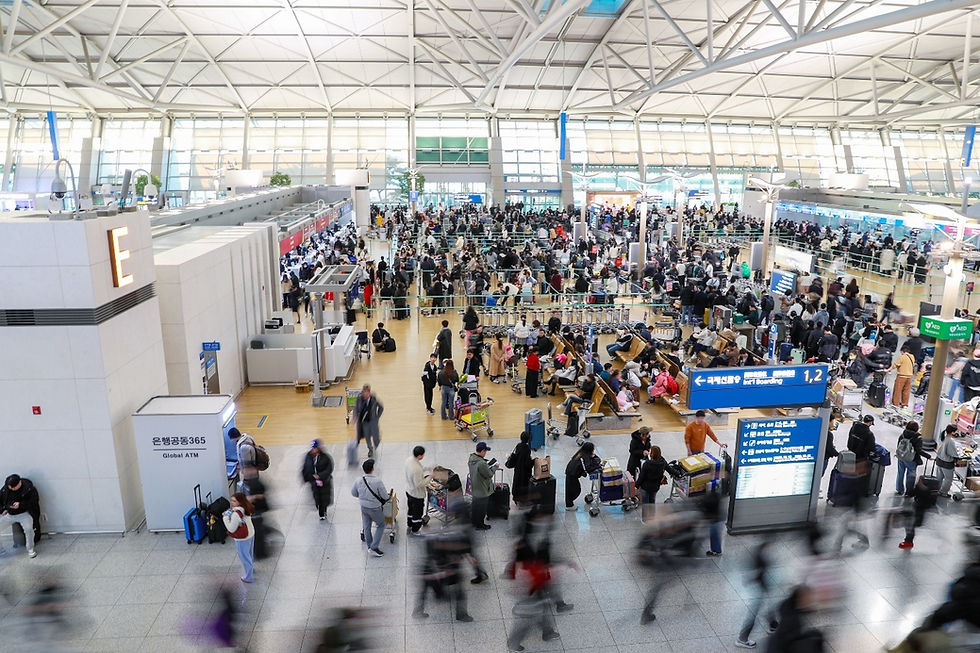Breathing New Life into Business: South Korea's Air Pollution Control Market
- The Dr.K

- Apr 1, 2024
- 2 min read
In the dynamic landscape of global environmental standards, South Korea emerges as a compelling theater for the air pollution control industry. As nations grapple with the dual challenges of industrial growth and environmental sustainability, South Korea presents a unique blend of regulatory stringency and market potential that is attracting international attention.
South Korea's commitment to reducing air pollution is not just a policy stance but a burgeoning industry ripe with opportunities. The country's strategic initiatives, including aggressive air quality improvement plans and substantial investments in green technologies, lay the groundwork for a robust market ecosystem. For businesses looking to venture into the air pollution control sector, understanding the nuances of South Korea's approach offers a significant advantage.

The Crux of Opportunity
The heart of South Korea's air pollution control industry beats with a rhythm of innovation and regulation. With the government's keen emphasis on cutting-edge technologies and systems to combat air quality deterioration, there's a clear demand for solutions that are both effective and advanced. This drive is further amplified by South Korea's dedication to meet international environmental standards, setting a high bar for entry but promising substantial rewards for compliance and excellence.
Market Dynamics and Best Prospects
The landscape is diverse, encompassing a range of products from emissions reduction technologies to sophisticated monitoring systems. Key areas of interest include fine dust reduction solutions, industrial emissions controls, and urban air quality management systems. Companies bringing in innovative technologies that can outperform existing solutions or offer cost-effective alternatives have the potential to capture significant market share.
Navigating Challenges with Strategic Insights
Entering South Korea's air pollution control market is not without its hurdles. The regulatory environment is stringent, with a complex web of standards and certifications that products must meet. Additionally, competition is fierce, not just from local players deeply entrenched in the market but also from international firms eyeing the same opportunities.
Key Takeaways for Businesses
1. Innovation is Key: To penetrate the South Korean market, companies must bring innovative and effective solutions that address specific pollution control needs. Tailoring products to meet local regulations and standards is non-negotiable.
2. Partnerships Matter: Forming strategic alliances with local businesses can provide invaluable insights into the regulatory landscape, market preferences, and business etiquette in South Korea. These partnerships can accelerate market entry and enhance competitiveness.
3. Stay Informed and Compliant: Keeping abreast of the evolving regulatory framework is crucial. Companies must ensure their solutions not only meet current standards but are also adaptable to future regulations.
4. Focus on Sustainability: Sustainability is a critical consideration for South Korean consumers and businesses alike. Products and solutions that emphasize eco-friendliness and energy efficiency are likely to be more appealing.
5. Leverage Government Initiatives: The South Korean government offers various incentives and support programs for businesses in the green technology and pollution control sectors. Taking advantage of these initiatives can provide a significant boost to market entry strategies.
Conclusion
South Korea's air pollution control industry represents a fertile ground for businesses ready to rise to the challenge of environmental stewardship. With the right mix of innovation, strategic partnerships, and regulatory compliance, companies can not only succeed in this market but also contribute to a global movement towards cleaner air and sustainable industrial practices. For more queries, write to us at directresearchkorea@gmail.com.
Reference:




Comments